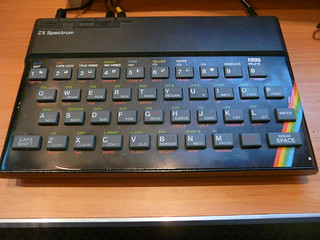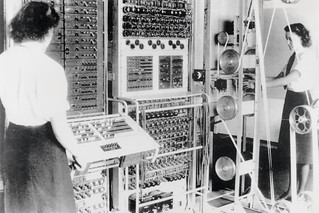The Times in England recently featured an excellent article entitled Bro Coders. It begins:
"The lack of women in software engineering is an embarrassment rather than a function of their biology. The crude assertion of biological determinism, made in an internally circulated memo by a Google employee that then went viral, has thankfully been disavowed by the tech giant."
Quite so. And the memo it refers to reminded me of the ridiculous belief in Ada Lovelace’s time (19th century) that women were too ‘weak’ to be able to cope with the demands of subjects like mathematics.
You can read the Times article here, but you will need to register in order to read all of it.
I took the time to read the original memo. It contains two main themes really. First, that you’re not ‘allowed’ to express views that are considered to be conservative — which would seem to be borne out by the fact that the author was fired. Secondly, that women are biologically unsuited to working as software engineers.
I have to say that I found the article difficult to read because it was so long and, frankly, boring. There is a heading ‘TL;DR’ which stands for Too long; didn’t read’, yet the document is over 3,300 words long.
More to the point, although I respect the author’s right to think what he thinks, and although there have been found to be differences between male and female brains, I believe(a) that other factors are much more important than biology and (b) there are so many exceptions to the ‘rule’ that his argument is meaningless. It’s certainly not a reason for the paucity of women in technology: it sounds more like an excuse.
(Incidentally, I think the best statement on the difference between male and female brains came from a 14 year old girl called Sally. I said to her and her parents that I’d just read about some research which indicated that women’s brains have twice the area devoted to language than do men’s brains — to which Sally replied: “I think we all knew that.”!)
But even if he is correct that, in his words,
“Women, on average, have more openness directed towards feelings and aesthetics rather than ideas. Women generally also have a stronger interest in people rather than things, relative to men (also interpreted as empathizing vs. systemizing).”,
in my opinion that would be an excellent reason to encxourage girls and women to become computer programmers. We need people who can see the bigger picture, not people whose main concern is the code.
This is exactly what is required in the English Programme of Study for Computing, which emphasises the need to use technology safely and responsibly.
In my experience of teaching Computing, I found that on the whole the girls were more collaborative and co-operative, and more concerned about issues like the usability of their programs. So, if we’re going to focus on stereotypes, it seems to me that in many respects we’d all be a lot better off if there were more women in technology rather than fewer.
I realise that the preceding paragraph might itself be construed as sexist, but I am basing it on my experience of teaching Computing. My views are corroborated by an article in the New York Times. It is well worth reading:
Tech’s damaging myth of the loner genius nerd
To read the original memo and Google’s response, look here.
A very elegant and eloquent response was made by Mary-Ann Ionascu in an article entitled Actually, I was biologically designed to be an engineer.
The article is worth reading too for her ‘brief lesson in statistics’ and her statement:
“I don’t want to talk about diversity. I want to show you what diversity looks like.”
(Incidentally, in her article she also states that in her company “Every week, a group of us at work, including our CEO, discuss a recent article.” That’s a great idea, and I wish I’d included something like that in my article 8 elements of a stimulating classroom. However, I did something similar in my article 5 outlandish things to do in your Computing lesson, one suggestion in which was to give a lesson over to discussing the news. If that idea appeals to you, then read How to organise a news section of your Computing lessons.)
This article originally appeared in Digital Education, my free newsletter. To find out more and to subscribe, check out the newsletter page on this website.










I wrote and published this more than ten years ago (in 2014). Apart from the fact that some terminology has changed and some resources are no longer available, it is still relevant. What a sad situation.